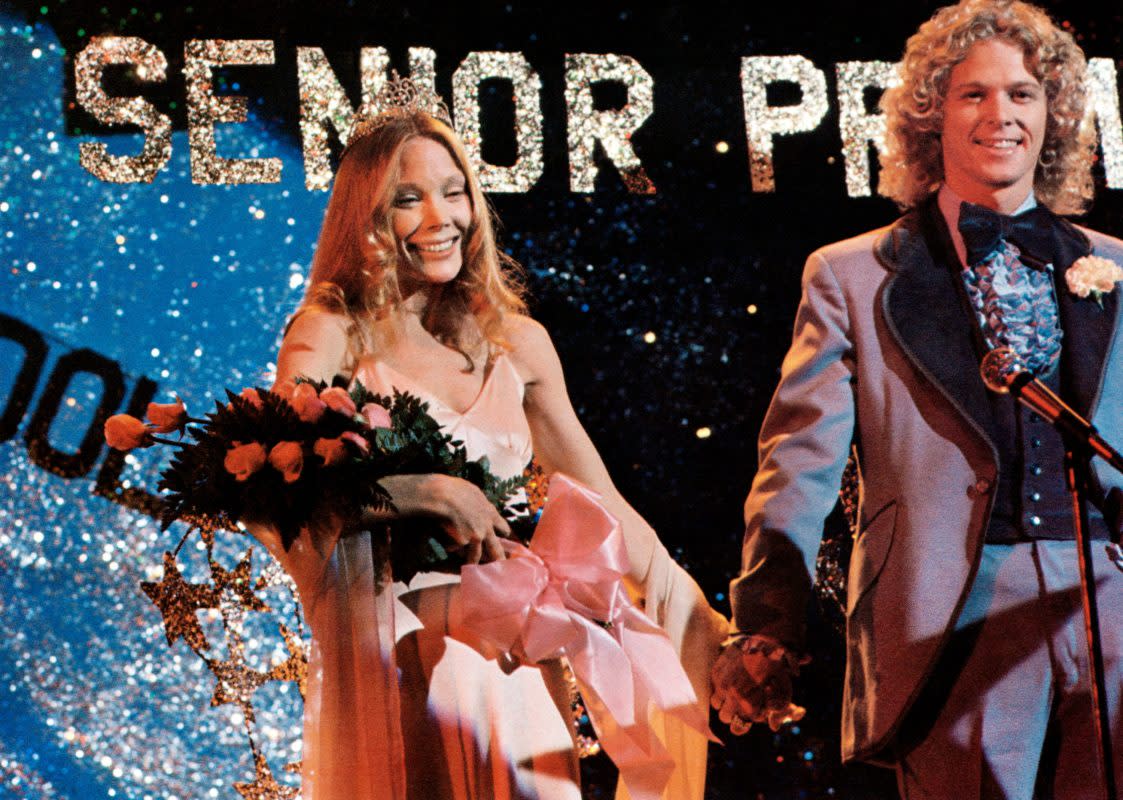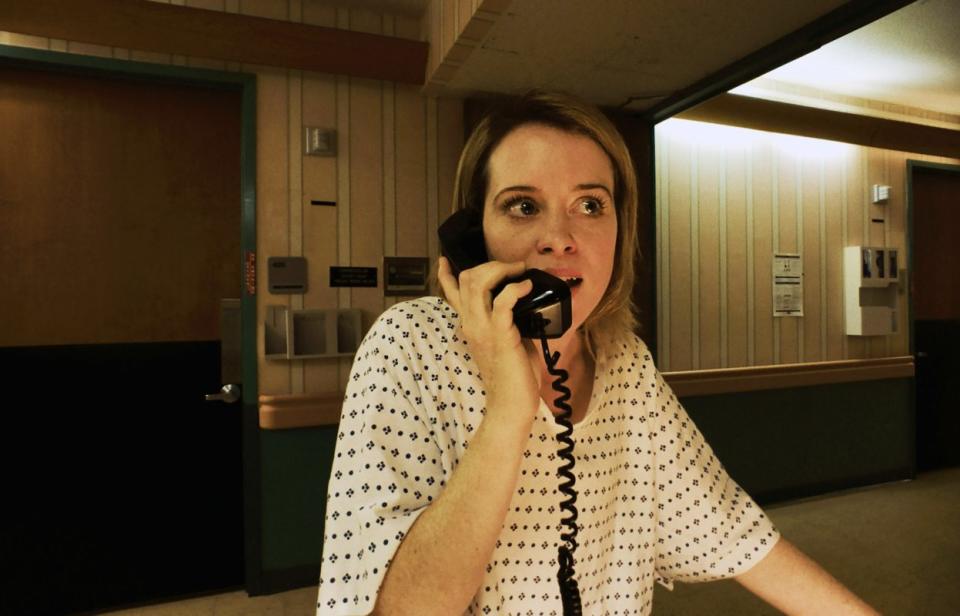In the World of Horror, Sometimes Being a ‘Crazy Woman’ Has Its Advantages

“House of Psychotic Women” levitates above the niche sub-genre of autobiography through cinema. Layers of knowledge, confession, and imagination mingle to produce a narrative that invites re-reading and re-interpretation. On one level, it is a memoir of personal trauma expressed through horror heroines everywhere from classic horror to giallo to exploitation to more arthouse fare like Robert Altman’s “Images.” Yet author Kier-La Janisse’s book — intriguingly subtitled “An Autobiographical Topography of Female Neurosis in Horror and Exploitation Films” — reaches beyond both autobiography and cinema to conjure a space where collective female neurosis is a sane response to insane circumstances.
First published in 2012, the book has now been reissued for its tenth anniversary, complete with an updated list of films the Canadian author, critic, and horror expert examines. All of them, of course, about “psychotic women.” “I privileged films that were not about psycho-killer women, I privileged films that were more about women questioning their sanity,” Janisse told IndieWire of the new titles, “Because that’s my biggest fear.”
More from IndieWire
She divides that fear into its yin and yang: “My fear is either that I’m insane and I don’t know it, or that everybody else is going to decide that I’m insane.” One of the new titles added is Steven Soderbergh’s paranoid thriller “Unsane,” in which Sawyer (Claire Foy) is committed to a mental hospital after being driven to desperation by a stalker.
Sawyer experiences what Janisse herself has experienced: being admitted to a mental hospital your ID and phone are taken away. “It’s symbolic,” said Janisse. “You lose your identification and you’re put into this place where because you’re categorized as a mentally ill person, you don’t have any rights anymore. You’re not part of society, the things you say don’t matter.”
Janisse believes that “pretty much as soon as we are born” women know how easily the label of “insane” could be slapped on us to strip us of our agency and invalidate our reality. “We have a history of this happening to women for centuries. Because we know this, there is a reactivity in women,” she said. “There is something special about the way that women perceive the things that happen around them, but that doesn’t have to be a bad thing. It doesn’t have to be a negative thing. It’s almost a superpower.”

Everett Collection / Everett Collection
Genre coming-of-age films can literalize a sensitivity to emotional weather as an actual super-power. None more so than in Brian De Palma’s “Carrie,” whereby the shy, bullied heroine has powers of telekinesis activated by oppressive treatment from her fundamentalist mother and cruel peers. “A lot of the movie is about that tension of: is she going to learn how to control it? Or is she going to fucking explode?,” said Janisse. “The book is definitely engaging with that question of, what does ‘crazy’ mean? Is it good or bad? If both: is it justified? Is all of this behavior a normal response to the kinds of things that are happening to these women, you know?”
Of course, it’s easier to appreciate the combustible power of Carrie White from a safe distance, with a screen between us and the flames she unleashes. “Faced with neurosis in film or literature, we want to investigate rather than avoid,” Janisse wrote in the introduction to “House of Psychotic Women,” and ten years on she tells IndieWire that she somewhat shot herself in the foot there. “I wrote a book about women and mental illness and this has resulted in a lot of women with mental illnesses wanting to talk to me. They’re like, ‘You’re one of us,’ but the problem is that I’m terrified of other people who are like me.”
Psychotic women in film and literature may rage and kill and unravel, but one thing they never do is transgress physical boundaries, a virtue that becomes exponentially more important to the extent that those boundaries have been transgressed before. As Janisse said, “With the characters in the films, there is definitely this safety in that I don’t ever have to worry about there being a real intrusion into my psyche.”
With that safe container in place, horror is a genre with almost a carte blanche for depicting the tragedy and depravity of psychological disturbance. “Horror cinema, because it’s so extreme, does become a place where we can face all the things that give us anxiety, whatever those things are, because there’s obviously many, many different types and sub-genres that are all focused on different types of fears,” she said.
To a viewer unable to speak of their primal fears to another human soul, horror may offer a type of reassurance, or at least recognition. “Horror films invite you to explore all the messiest places,” said Janisse, mentioning how the rape-revenge genre is patterned according to a common real experience of women let down by the justice system. “In the movies, they get to live up to the fantasy of taking a vigilante-style revenge, which they wouldn’t be able to do in real life.”
Playing out wish-fulfillment through fictional characters can save us from living out similar scenarios with our real bodies. Janisse has often talked freely about being a teenage delinquent, one who believes that watching films like “Over the Edge,” starring a young Matt Dillon, gave her pause. “There was a recognition there in terms of, ‘OK, I’m like this and it would be very easy for me to cross over into being very bad, but I have to make choices,'” she said. “You can get some vicarious thrill out of the fact that characters are living out this extreme fantasy, but you’re also able to reflect on the consequences.”
Depictions of neuroses in film and literature are appealing because these artforms offer an intimate space to wargame deviant urges, free from consequence. “House of Psychotic Women” provides the same safe container as the films that Janisse salutes, a space untethered from the phallocentric order where psychotic women (and Janisse semi-playfully contends that all women are crazy) can marinate in the full spectrum of our most vivid and unhinged emotions.
Best of IndieWire
New Movies: Release Calendar for October 14, Plus Where to Watch the Latest Films
Martin Scorsese's Favorite Movies: 50 Films the Director Wants You to See
Sign up for Indiewire's Newsletter. For the latest news, follow us on Facebook, Twitter, and Instagram.

 Yahoo News
Yahoo News 
